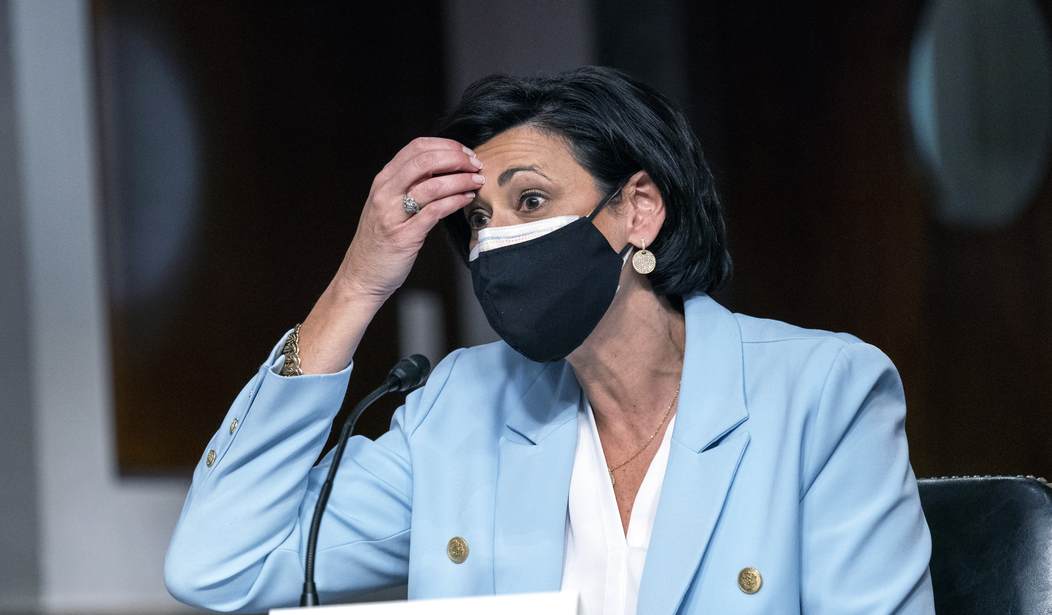If you have to go to the hospital, you don't want to end up in a dangerous one.
The federal Centers for Disease Control and Prevention knows which hospitals are riskiest, but it's hiding that information from you -- your safety be damned. The feds seem to think they work for the hospital industry, not for you.
Whenever a hospital has a superbug outbreak, the CDC conceals the hospital's identity, referring only to "Hospital A." A lot of good that does patients looking for safe care, especially patients with compromised immune systems, cancer, or HIV.
It's no joke to find out, after you're already in the hospital, that a superbug is raging room to room or has invaded the nursery where your newborn will be placed. That's what happens when the CDC hides outbreaks.
Now the CDC is playing statistical tricks to hide how many people have caught COVID in hospitals and to block the public from seeing which hospitals have had the biggest problem.
The stakes are high; 21% of patients who catch COVID in the hospital never make it out, according to Kaiser Health News.
Though the pandemic may be fading, vulnerable patients need to know which hospitals proved proficient at preventing the spread of COVID inside their walls. It's a safety measure.
Over the course of the pandemic, thousands of patients went into the hospital for other reasons -- such as hip surgery, kidney disease or a heart attack -- and got infected with COVID.
The CDC is rigging the definition of hospital-acquired COVID to hide this problem.
The agency says only patients who test positive after being hospitalized at least 14 days are considered infected by the hospital. That eliminates almost everyone. The average patient stays only 4.6 days.
Recommended
The CDC definition also excludes any patient who left the hospital and then developed symptoms or picked up the virus in the emergency room.
It's a cover-up. The U.K. and many European countries count COVID infections diagnosed seven or eight days after patients enter as hospital-acquired.
At some hospitals, more than 5% of patients caught COVID in the hospitals, according to a Kaiser Health News analysis of state data and Medicare billing data. The CDC refuses to name these hospitals, defying Freedom of Information Act requests from the media.
When a plane crashes, the Federal Aviation Administration doesn't conceal the identity of the airline. Why does the CDC cover up for a hospital?
To be fair, some regions and some hospitals were hit harder than others by the pandemic. But it's also true that some hospitals took precautions to stop the virus from spreading and succeeded in providing safer care than others.
Some hospitals tested all incoming patients for the virus and retested days later to be sure. Testing proved critical, because most patients who contracted COVID in the hospitals got it from another patient. At Brigham and Women's Hospital in Boston, eight out of nine patients who became infected caught COVID from the patient sharing their room, according to the Annals of Internal Medicine.
Why didn't all hospitals test? Blame the CDC, which left it to the "discretion of the facility."
New Yorkers should demand to see the data the CDC is hiding. Hospital-acquired COVID is a problem here. In January, during the Omicron surge, rates of hospital-acquired COVID were higher in New York than the national average, though lower than in Washington, D.C., according to a Wall Street Journal analysis of unpublished federal data. Trouble is, citywide averages don't tell you what you need to know -- the adequacy of infection prevention in your hospital.
It's time to end the CDC's secrecy in the service of hospitals. The CDC's ploy to hide hospital-acquired COVID is a red flag.
Call the CDC the Centers for Deception and Cover-ups. The nation should be demanding a health agency that deals honestly with the public. If you have health problems, your life could depend on it.

























Join the conversation as a VIP Member